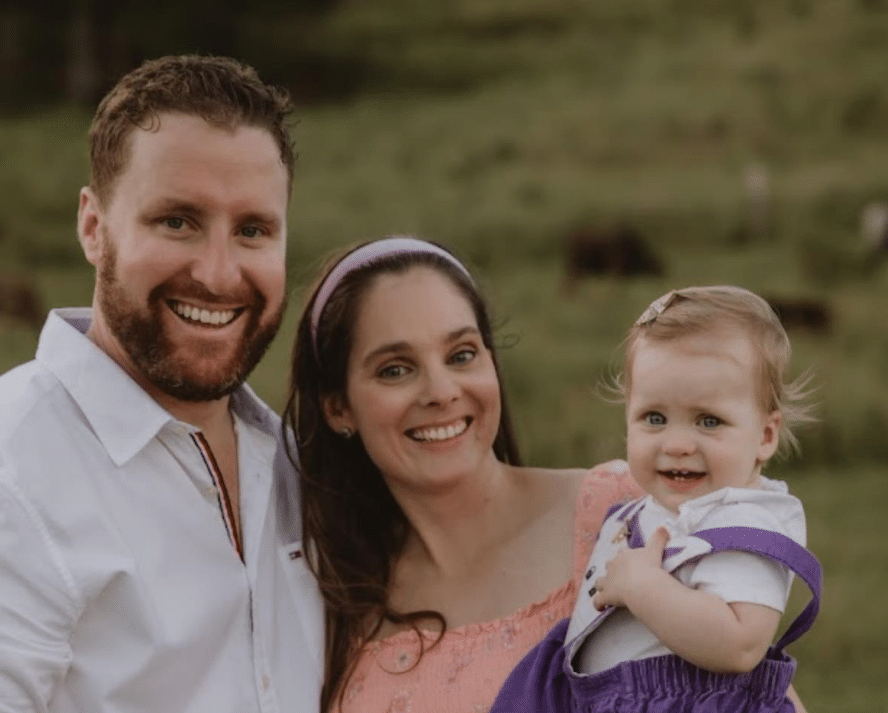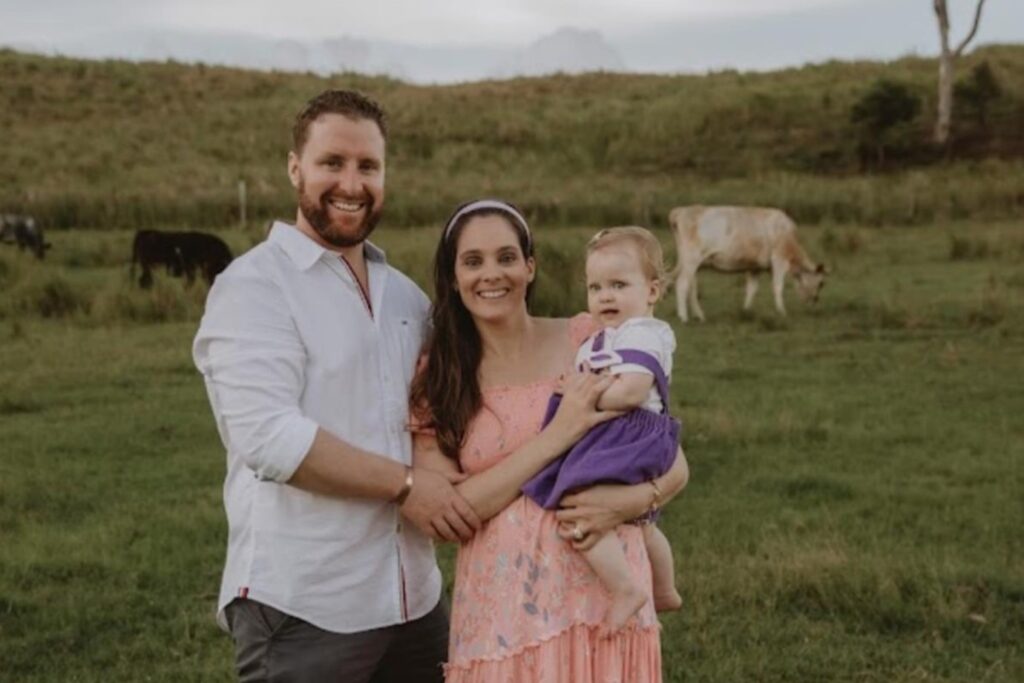Less than 48 hours after giving birth for the first time to her daughter through an emergency C-section, Melinda McLennan was sent home from the hospital despite knowing she wasn’t ready.
Speaking with Women’s Agenda, McLennan says she “knew that wasn’t really a great idea” to go home, but adds that she was “in a whirlwind” and felt too shocked and unprepared to say anything to the doctors.
“So I went home. And three days after [my daughter] was born, I had this kind of wave that came over me, and I felt like I was constantly out of it.
“And that sort of ebbed and flowed for me for the next three and a half to four months, with a lot of anxiety, and a lot of severe chronic anxiety, riddled with that inability to sleep.”

Aware that she needed support, McLennan reached out to public and private clinicians as well as several maternal health hotlines but felt she had to really fight to receive the critical care that she needed.
“I advocated so much for myself over four months,” she says. “I had to plead to the emergency department when I was getting critical like five times within seven days, and I had to keep pleading and pleading for myself.
The experience was “far too much” for her, and McLennan says she worries “there might be other people who don’t have the capacity or the support to be able to keep pleading and asking for help.”
McLennan believes things would have been easier if the clinicians she had reached out to were more aware and understanding of perinatal mental health, referral pathways and the support systems available to patients.
“I don’t think you can ever really eliminate birth trauma, but you can significantly reduce its prevalence, and then also have strategies in place that are going to support women if they do suffer it,” she says.

To address these existing gaps in perinatal mental health care, the Centre of Perinatal Excellence (COPE) and Assistant Minister for Mental Health Emma McBride MP recently launched the 2023 Australian Clinical Practice Guideline: Mental Health Care in the Perinatal Period.
These guidelines provide the latest, evidence-based advice on how health professionals can support new and expecting mums and the vast numbers of mothers who experience birth trauma– one in three women in Australia.
Regular screenings for all mums is a core focus of the new guidelines to better identify those experiencing or at risk of mental health issues.
In Australia, 10 per cent of all women experience depression during pregnancy and 15 per cent (one in seven) experience postnatal depression.
Twenty per cent of women are affected by anxiety in both the antenatal and postnatal periods, and suicide is the leading cause of maternal death in Australia.
Executive Director of COPE and chair of the Guideline committee, Dr Nicole Highet says that when a birth doesn’t go to plan or is a traumatic experience, this “significantly increases the likelihood that a woman will experience anxiety, depression and post traumatic stress disorder”.
And these mental health impacts are even more significant, given they “not only impact on the quality of life for the mother, but will also impact on, possibly, her bonding and attachment with their new infant and their ability to function from day to day with the added burden of looking after a new baby,” says Dr Highet.
The screenings recommended in COPE’s new guidelines are meant to catch these women before they fall through the cracks, and Dr Highet says the guidelines “are fundamental to raising awareness and educating practitioners about birth trauma”, including recognising symptoms, incidence and understanding “what interventions are safe and effective”.
New additions to the guidelines also include how health professionals can assist with the significant and often hidden struggles of non-birthing partners, which Dr Highet says is “a world first”.
The COPE guidelines received an international review with a rating of 99 per cent which is “by far the highest rated gold standard guideline internationally” she says. “And part of that rating was the inclusion of fathers and partners into the guidelines and the specific needs they have”.
Also included in the COPE guidelines are additions that unpack some of the surrounding medication use during pregnancy and when breastfeeding.
“It’s really important that we address birth trauma and we screen for it and respond appropriately because it is often something that can be pushed under the carpet, and that really only exacerbates the seriousness and the long-term impacts,” says Highet.
Lifeline 13 11 14
BeyondBlue 1300 22 4636
PANDA Helpline on 1300 726 306

